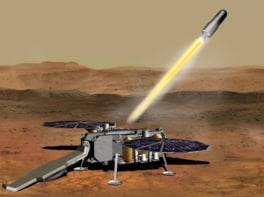
By Michael Banks in Beijing, China
It’s my final day in Beijing and keeping up with the daily weather reports, it is still raining. But that is better than the snow that was forecast only a couple of days ago.
My time in Beijing has been short, but packed full of interesting discussions with researchers.
Yesterday I headed to the Beijing Institute for Nanoenergy and Nanosystems. Today, I visited the theoretical condensed-matter physicist Fuchun Zhang, who is director of the Kavli Institute of Theoretical Sciences (KITS).
He is building up KITS, which was established in October 2016 – the latest institute supported by the Kavli Foundation. Starting out with a only handful of researchers, that number will eventually reach around 24.
For the time being the institute has temporary offices at the University of the Chinese Academy of Sciences‘ campus in the city centre but they will move to a new custom-built institute within the next three years that will be located on the university’s new campus, which is being built on the outskirts of Beijing.
KITS will initially carry out research in five main areas: condensed-matter physics; particle physics; biophysics; quantitative biology and quantum information.
Zhang is now on a recruitment drive to attract researchers, some of whom will be from outside China. While he says that it is easy to get foreign researchers to visit the institute for a short period, it is more tricky when it comes to permanent positions.
One challenge is competition from neighbouring and well-established universities in Beijing such as Peking and Tsingua.
Yet Zhang is hoping that the Kavli “brand” will tip it in their favour as well as the competitive salary, which he says is “similar to that in Europe or the US”.
Indeed, Zhang spent more than a decade in Hong Kong, where he says he acted as a bridge between the west and China by putting Chinese researchers in touch with their western counterparts during workshops and conferences.
He hopes to do the same with the new institute. “Kavli can be that bridge,” he adds.



